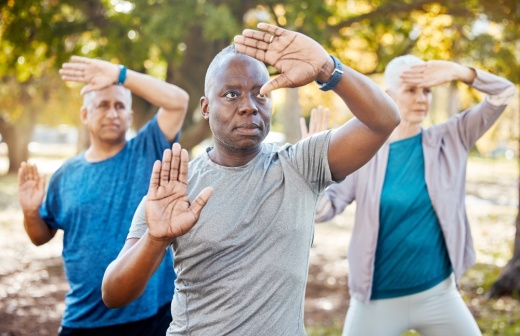Researchers at The University of Texas Health Science Center at San Antonio are using artificial intelligence to tailor the ancient movement practice of tai chi into a series of routines for dementia patients, with the goal of preventing falls.
The overview
According to a news release, the project aims to prevent dangerous falls for people with Alzheimer’s disease and related dementias by using tai chi as a modern, data-driven intervention for the falling risk.
The project is led by Wei Liu, associate professor in the Department of Physical Therapy at UT Health San Antonio’s School of Health Professions and research director of the Human Performance and Rehabilitation Research Lab. Lixin Song, professor and vice dean of research and scholarship with the School of Nursing, is co-investigator of the study.
According to a news release, Liu is developing a mobile app, powered by artificial intelligence, that will evaluate patient health data and offer tailored tai chi routines designed to improve balance and reduce the risk of falling for people with early cognitive decline.
“When you’re doing tai chi, it’s a challenge to your dynamic balance. That means you’re using your brain, connecting your muscles, then making the whole thing work,” said Liu. “The hypothesis is that if people with dementia learn how to challenge the
balance, then they begin to get used to that challenging environment when they translate this motion and motor-learning skills into daily activities, like walking, and hopefully have less fall risk.”
Why it matters
According to the Centers for Disease Control and Prevention, people living with dementia are up to three times more likely to fall than those without the condition. In Texas alone, falls among older adults cost the health care system $2.4 billion annually.





